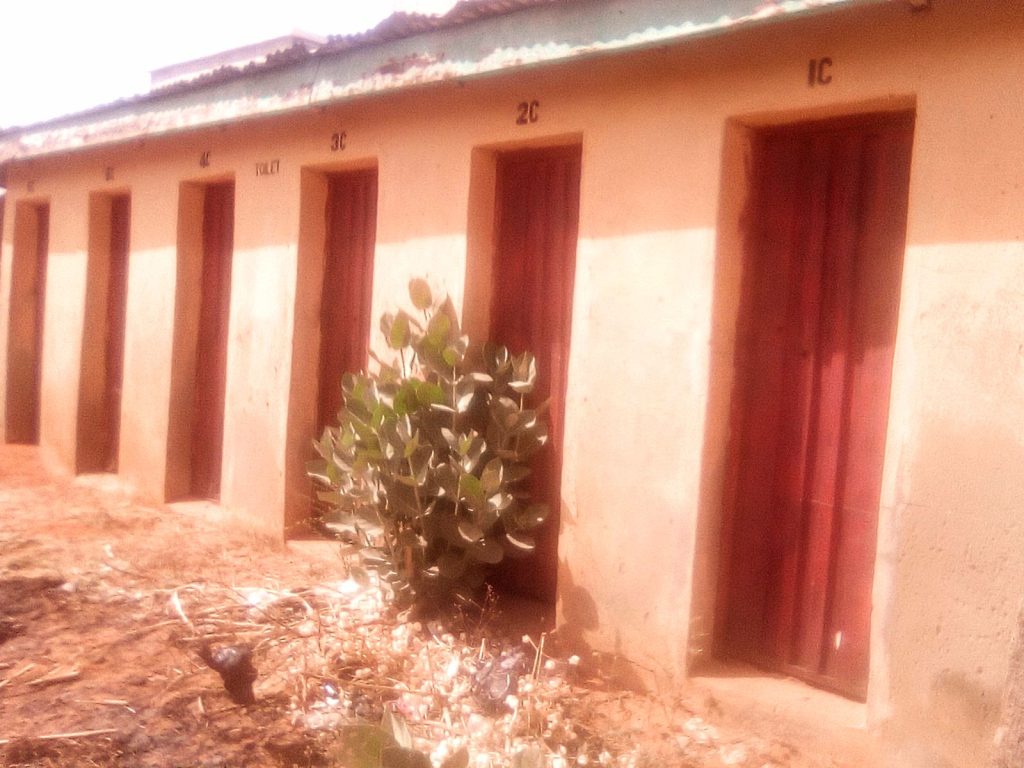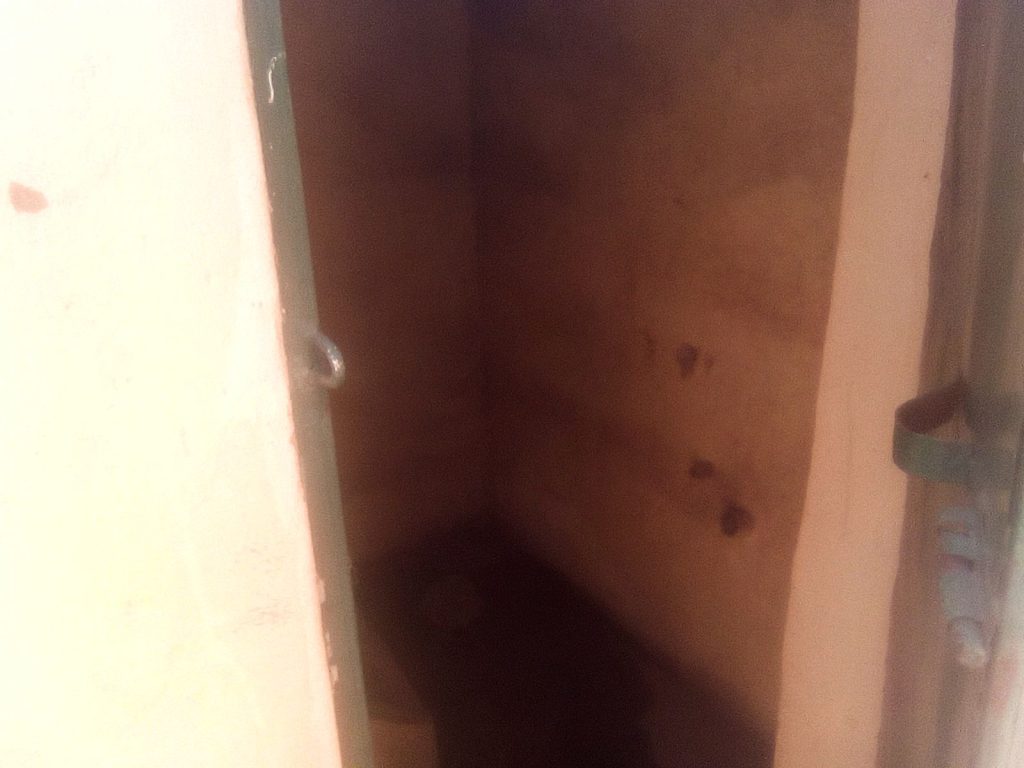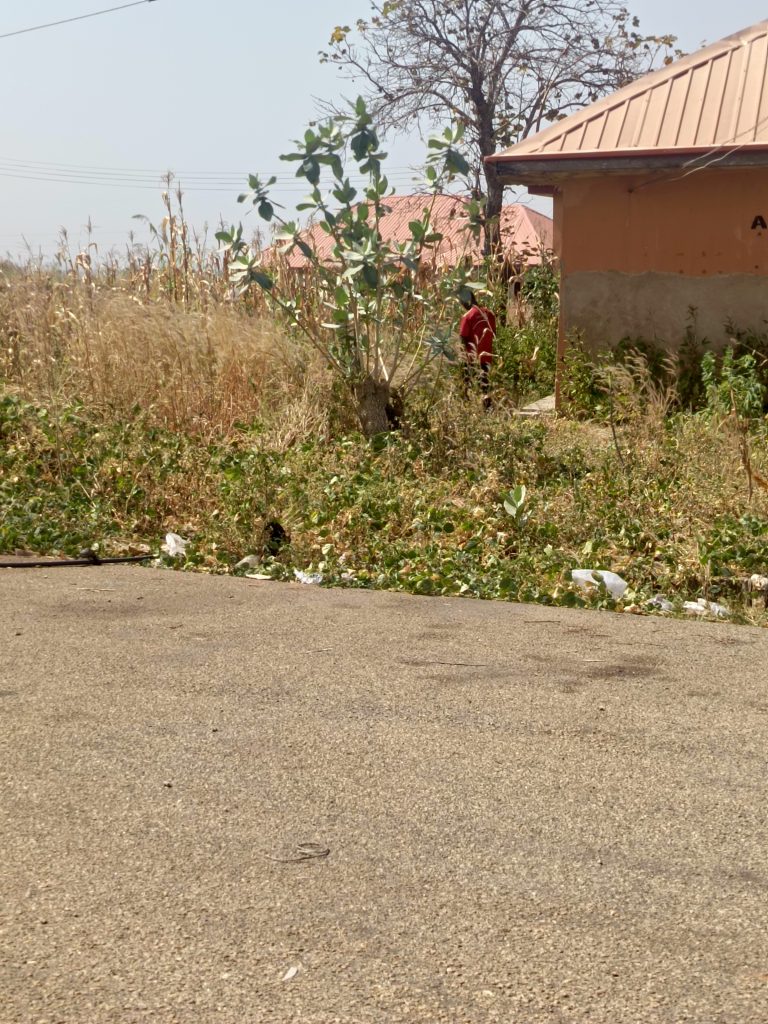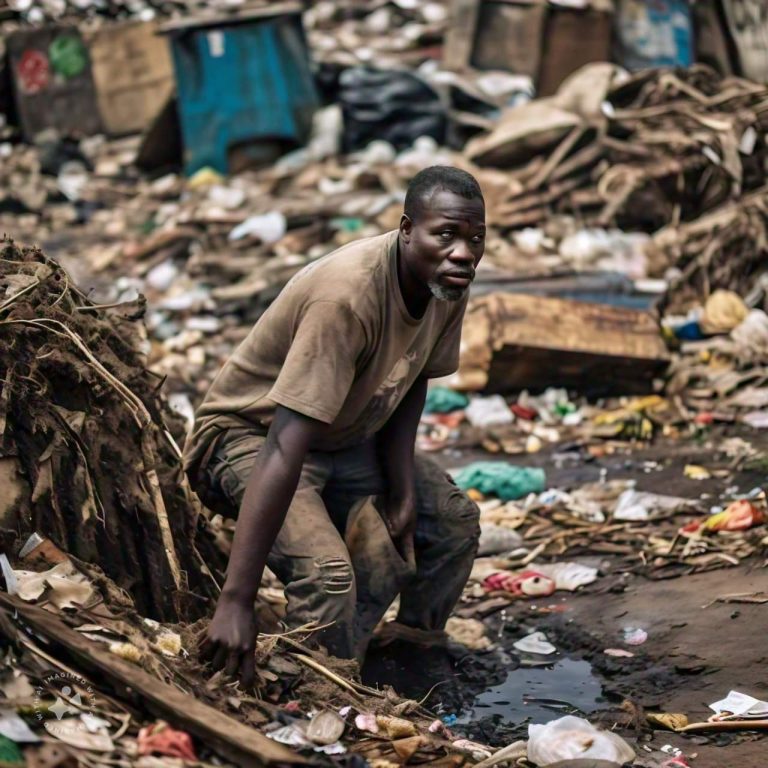Open defecation appears to be a common practice in Niger and Sokoto states due to the lack of functional toilets in public areas such as markets, motor parks, government institutions, schools, and even some homes.
By Tina George, Zahra Muhammad and John Asishana
Open defecation remains a critical public health and environmental challenge in Nigeria. According to the World Bank, 3.5 billion people do not have access to efficient sanitation options. Out of this number, 419 million people still practice open defecation, an act linked to increased disease burden and ultimately, deaths.
This statistics translates to nine out of 10 people practising open defecation in rural areas, popularly in Africa as well as Central and Southern Asia.
Open defecation occurs due to the absence of a “safe toilet”. This means a toilet which is not shared with other households, that either treats or disposes of human waste on site, stores it safely to be emptied and treated off-site, or connects to a sewer and treatment plant.
Key statistics
According to the United Nations Children’s Fund (UNICEF), more than 48 million Nigerians still practice open defecation. These statistics make Nigeria the lead in open defecation Africa and second highest in the world, closely behind India.
Out of this number, rural areas account for the majority of contributors to open defecation than urban areas.
The challenge in rural areas is compounded by issues such as a lack of access to toilets, inefficient water supply systems as well as an ever-increasing population.
Sokoto state
In Sokoto state, several schools, public places and residential houses do not have functional toilets. ASHENEWS visited some schools and houses in Sokoto State and discovered that availability of water is what pushes several people to defecate openly.
One of the schools visited, Total Primary and Secondary School had no toilet. One of the teachers, Mr. Musa Muhammad, a teacher at Total Primary and Secondary School in Sokoto, said the school does not have toilets, so students have to use the bush to relieve themselves.
“We are not happy about the lack of toilets in the school. We are working to make toilets available by the beginning of next year because it is not right for students to go outside during school hours,” he said.
Muhammad explained that as a private school, installing toilets is challenging due to financial constraints and the cost of maintaining cleanliness.
“We don’t want a situation where the toilets become dirty and unusable,” he added.
Mr. Yushau Bello, a teacher at Government Day Secondary School Danbuwa, Sokoto State, said their school has four toilets. One is for male students, one for female students, and the other two for male and female staff.

“We have a cleaning schedule for female students to keep the toilets clean during morning assembly and break time. Our school is big, with over 1,000 students, so we make sure the surroundings and toilets are always clean.
“We don’t want our students going outside to relieve themselves. It is not safe and could make them sick because you never know what might be on the ground.”
Mr. Mustapha Muhammad, a teacher at Government Girls Day School Danbuwa, Sokoto State, said the school has toilets, but keeping them clean is a big challenge.
“The toilets are often so dirty that some students prefer to use the bush instead.
“We, the teachers, tried creating a cleaning schedule for the students, but the main problem is water. There is no water in the school, and buying water every day is difficult and costly since we have over 10 toilets to clean,” he added.

He urged the government to help by providing a borehole or making water more available. “This will ensure our students do not get used to using the bush instead of the toilets,” he said.
Mr. Sadiq Akinrolabu, a teacher at Titade Nursery and Primary School in Anguwar Kosa, Sokoto State, said their school has toilets, and they are cleaned every morning before assembly and again after the long break.
“Toilets are very important to us because we believe students feel more relaxed when they have proper facilities. As my mother used to say, using the toilet makes children feel their best, and it’s even fun for them. We ensure our students can learn and enjoy themselves without needing to leave the school to relieve themselves,” he explained.
He further said, “We don’t ask students to clean the toilets. We employ women to handle the cleaning, and they do it twice daily to keep the toilets hygienic.”
Most of the residential houses, especially those with large numbers of tenants within the Sokoto metropolis, do not have toilets, mostly because the landlords do not see the need for them to build toilets for them.
Mama Wisdom, a mother of four living in a shared “face me and face you” compound on Offa Road in Sokoto State, said their compound does not have toilets, so they use the nearby open space for dumping refuse for relieving themselves.
“We only have a bathroom, so we usually use the dustbin to excrete. I always go with my children when they need to use it,” she explained.
“We rented this house because it was cheaper, and we didn’t have much money at the time. But I believe by next year, we will move to a better place.”
Niger State
It is no different in Niger state as markets, motor parks, schools and even some houses still lack functional toilets. Several of the uncompleted buildings are used for open defecation and several people engage in it without fear.
There are serial weekly markets across Niger state that do not have public toilets while the public toilets in some of the main markets are not patronized by the traders as the traders believe they do not need to pay for defecating.

Anita Paul, a rice trader said she only uses the toilet when she has no other alternative to use, “you know that when you want to excrete, you will need privacy but oftentimes, there are always people around, so that time, I have no other choice but to use the public toilets which i pay for. But I really do not see the need for me to be paying for toilet.
“Why can’t the government make free ones for us? At least, if there is a free one, we will look for means of making it clean and providing water there”, she said.
Several public schools, including primary and secondary across Niger state, still lack toilets, and for schools that have toilets, the toilets are often neglected and become a place that is usually avoided by the students.
A teacher at the Government Model Science College, Tundun Fulani disclosed that the school has no toilets and that the students defecate in the bushes around. At the Gidan Mangoro primary school, the toilet is non-functional.
At the state Secretariat, both the old and the new, several ministries, departments and agencies have no functional toilets. While the toilets are there, they are often unkept and some lack water making several staff to avoid them.
Several houses in Kpakungun, Barkin Sale, Kateren Gwari, Maitumbi, Fadikpe, and Dusten Kura in Minna have inadequate toilets, especially those that are being rented out. These areas also have scarcity of water and to conserve the water they have, several residents prefer using the bush to defecate.
In 2022, Niger State was ranked 2nd in Open Defecation in the North Central part of Nigeria and there are no communities out of the 274 wards in the state yet declared Open Defecation Free.
In recent times, several NGOs and advocates have offered to address open defecation in the state but their efforts have been like a drop of water in the ocean.
The state government in 2022 inaugurated the State Task Group on sanitation but the group could not do much because they were faced with daunting challenges including lack of funding, Secretariat cum office accommodation, lack of vehicle and logistics among others.
With this development, the state would not be able to achieve Buhari’s Executive Order 009 to achieve Open Defecation Free status by the 2025.
In the 2024 approved budget, 0.88 per cent amounting to N5.19 billion was earmarked for the sectors of water and sanitation. This allocation hopes to ensure access to clean water and promote proper sanitation practices throughout the state.
Speaking with ASHENEWS, the Deputy Director of Environmental Health in the Ministry of Environment, Jibril Katamba Naimi said that massive awareness and sensitization campaign are ongoing across the state to ensure that the people are aware of the need for having toilets in public places and homes.
He called on stakeholders and organizations to make provisions for toilets in public places adding that ending open defecation is the responsibility of everyone because the government cannot do it alone.
Contrary to the evidence available, Naimi declared that the state of open defecation in the state is reducing due to the massive awareness and sensitization by the ministry of environment.
Based on data from Nigeria’s National Roadmap to End Defecation (2023-2025), without urgent reforms by the government and its partners, another 56 million people could be added to thie recent number of people without toilets in the next ten years, further exacerbating this crisis.
Impact on health
In 2019 alone, the World Health Organization (WHO) estimated that 1.4 million deaths, a good number of which include infants, could have been avoided with the provision of adequate water, sanitation and hygiene facilities. Out of this staggering number, nearly one million of these deaths occur due to diarrhoea.
A lack of proper waste disposal systems which could result from a lack of toilet facilities increases the risk of diarrheal disease, the third leading cause of death among children. This figure is compounded by issues such as unsafe sanitation, poor handwashing as well as unsafe drinking water.
This disease, despite this alarming mortality rate, is easily preventable through safe drinking water and adequate sanitation and hygiene.
Annually, diarrhoea kills around 443,832 children under five according to the global health body. More than 50,000 other children aged 5 to 9 years are also killed yearly by this disease.
Furthermore, not only is adequate sanitation a matter of human right and dignity, but proper sanitation and hygiene measures which will see to an end to open defecation are heavily linked to improved public health outcomes.
The proliferation of diseases such as diarrhoea, cholera, typhoid and dysentery also contribute to stunting, a type of malnutrition which affects the physical and mental development of nearly 28 million children.
Economic costs
In terms of productivity, a lack of functional toilet facilities can prevent children from going to school. Women and girls, in particular, face increased threats of violence and abuse due to the absence of dignified hygiene facilities.
The World Bank estimates that Nigeria loses about N455 billion annually in gross domestic product (GDP) due to poor sanitation. These costs arise from healthcare expenses, reduced productivity, and loss of time, particularly for women and children, who often spend hours searching for safe, private places to defecate
Government efforts, goals
While Nigeria seems to be recording improved access to basic sanitation services, progress in open defecation has remained stagnant.
Last month, UNICEF disclosed that Nigeria needs to build an additional 20 million toilets to meet up with the sanitation needs of the country and in the long run, eliminate open defecation in line with the Sustainable Development Goals (SDGs) by 2030.
While this figure is a discrepancy with the statistics given by Nigeria’s Minister of Water Resources and Sanitation, Professor Joseph Utsev last week that Nigeria needs an additional 11.6 million toilets to achieve its 2030 target of becoming Open Defecation Free (ODF), both stakeholders point to the need to exert more efforts to improve access to toilets.
The federal government, today, will launch the revised Clean Nigeria Campaign Strategic Plan. For this plan to work, the government must provide realistic targets and work plans to address issues around infrastructure and funding.
Cost-effectiveness also needs to be prioritized to ensure that Nigeria does not miss out on its target of achieving sustainable development goals 6.1 and 6.2 by 2030.


